The Africa Evidence Leadership Award 2024
The Africa Evidence Leadership Award (AELA) seeks to recognise individuals who have demonstrated clear and enduring leadership in the field of Evidence-Informed Decision-Making (EIDM) on the African continent. AELA awardees are distinguished by their experience in this field, their ability to advance EIDM in their respective contexts, strategic thinking, communication, collaboration, decision-making, innovation, empathy, integrity, and inclusion. By celebrating these competencies, the award inspires others to develop similar capabilities. The award was launched in 2018 by the Africa Evidence Network (AEN), with a fourfold purpose:
- Increasing awareness of EIDM in Africa.
- Raising the status of evidence amongst decision-makers in Africa.
- Showcasing the status of Africa in EIDM discussions by recognising impactful, insightful, effective, and/or innovative work that supports EIDM in Africa.
- Honour and celebrate excellent contributions to advancing EIDM in Africa.
To vote for your preferred nominee, each AEN member will have one vote per category. Please click below for the respective category.
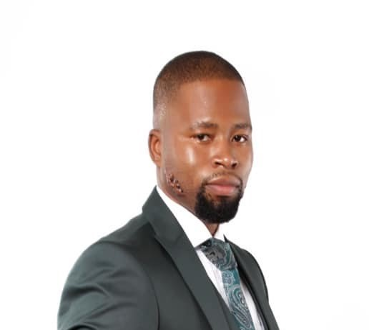
Bruce Lesiba Chidi
Bruce Lesiba Chidi: As a young professional, I am deeply passionate about promoting the use of evidence-based decision-making in various settings. This passion has been further fuelled by my membership in the first Cohort of the Africa Evidence Youth League (AEYL). As a member of this esteemed group, I have been actively involved in the league's activities and have played a significant role in shaping its initiatives.
One of the areas where I have made significant contributions is in promoting Evidence-Informed Decision Making (EIDM) in education. I have demonstrated exceptional leadership skills in collaborating with schools to promote the use of EIDM in education. Through these efforts, I have been instrumental in empowering young minds to appreciate the importance of evidence-based decision-making in their daily lives. This has not only enhanced their academic performance but also equipped them with valuable skills that will benefit them throughout their lives.
As part of the AEYL, I have led initiatives aimed at inspiring and mentoring young people to pursue careers in EIDM. These initiatives have not only fostered a sense of community among young evidence practitioners but also provided them with opportunities to develop their skills and knowledge. My commitment to capacity building has led to the production of high-quality deliverables, including communication pieces, analytical works, and concept notes. These achievements have positioned me as an emerging evidence practitioner with a bright future ahead.
Currently, I am participating in the second phase of the PACKS Africa mentorship program, having successfully demonstrated my competencies in the first phase. This program has further honed my skills and knowledge in evidence-based decision-making, making me an asset to any organization. The mentorship program has provided me with valuable insights and guidance from experienced professionals in the field, which has helped me to refine my skills and stay up-to-date with the latest developments in evidence-based decision-making.
I am honoured to be nominated for the Africa Evidence Youth League (AEYL) award, recognizing my outstanding contributions to the league, my dedication to promoting EIDM in schools, and my commitment to empowering young people. This nomination is a testament to the hard work and dedication that I have put into my work as a young evidence practitioner. I am proud to be part of a community that is committed to promoting evidence-based decision-making and empowering young people to make a positive impact in their communities.
In conclusion, my experience as a member of the Africa Evidence Youth League (AEYL) has been a rewarding and enriching experience. Through my contributions to the league, I have been able to develop my skills and knowledge in evidence-based decision-making and make a positive impact on the lives of young people. I am excited about the future and look forward to continuing to contribute to the growth and development of the AEYL and its members.
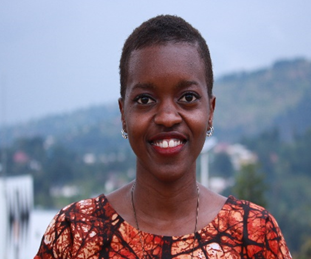
Elise Hirwa Musabimana
Elise Hirwa Musabimana is a Made in Africa evaluation enthusiast, and advocate for sustainable development and social justice, dwelling in Rwanda. With a commitment to improving healthcare systems and promoting equitable access to resources, Elise's journey in the field of global health delivery has been marked by a series of academic achievements including publications, professional experiences, and community engagements.
Elise's educational foundation is rooted in her pursuit of understanding and addressing environmental health challenges. She earned her Bachelor of Science in Environmental Health Sciences from the University of Rwanda, where she delved into diverse subjects such as disease control, epidemiology, and food safety. Building upon this groundwork, she pursued a Master of Science in Global Health Delivery with a focus on One Health at the University of Global Health Equity in Kigali. This advanced degree equipped her with a comprehensive understanding of evidence-based global health, pandemic preparedness, and neglected tropical diseases, among other critical topics.
Her academic pursuits have been complemented by a diverse range of professional experiences that have allowed her to apply her knowledge in real-world settings. As a Research Associate and Senior Analyst at Vanguard Economics Ltd, Elise played roles in various research projects, from designing studies to analyzing data and writing comprehensive reports. Notably, her involvement in initiatives such as the African Women Rise Initiative and the Early Childhood Development project highlights her dedication to addressing pressing societal issues affecting vulnerable populations.
In addition to her professional endeavors, Elise is deeply engaged in community service and advocacy. As a Volunteer at the Rugero Adolescents and Reproductive Health program and a Member of the Grant Writing Committee at Rotary Club Kigali Virunga, she actively contributes to initiatives aimed at empowering youth and promoting reproductive health education. Moreover, her previous role as Founder and Director of Partnerships at the University of Public Health Students Association underscores her leadership and organizational skills in fostering collaborations for community development.
Elise's expertise extends beyond her professional and academic achievements. Proficient in both English and French, she possesses strong analytical skills and is well-versed in various data analytics tools such as SPSS, R, ArcGIS, and MAXQDA. Her ability to effectively communicate complex ideas and collaborate with diverse stakeholders has been instrumental in her success as a researcher, project coordinator, and advocate for positive change.
Driven by her passion for making a difference, Elise remains committed to leveraging her expertise to contribute to sustainable development efforts, particularly in Rwanda and on the African continent. In her free time, she enjoys reading political books, networking, and traveling in rural areas to understand different perspectives of communities.
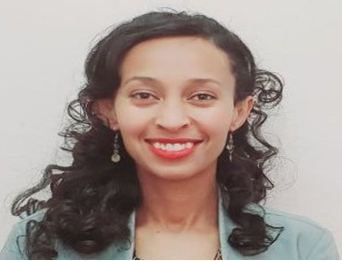
Firmaye Bogale
Firmaye Bogale has over a decade of experience in the field of public health, having effectively navigated clinical and non-clinical healthcare realms. Her experience encompasses key roles in primary healthcare delivery, health program evaluation, public health research, knowledge translation, and evidence-informed decision-making.
With a master’s degree in public health, she currently leads the Knowledge Translation Directorate at the Ethiopian Public Health Institute in the capacity of a directorate director. In this capacity, she leads and works on a range of initiatives and projects aimed at translating scientific evidence into actions for informed decision-making in healthcare. Notable among her engagements are her involvement in projects such as the Partnership for Evidence and Equity in Responsive Social Systems (PEERSS), her instrumental role in assessing Ethiopia’s health technology assessment landscape, and the development of the country's health technology assessment roadmap. Firmaye has authored and co-authored over 20 evidence synthesis products and research papers, reflecting her commitment to advancing evidence-informed decision-making.
She is passionate about contributing to the advancement of the EIDM space especially in Africa. To this effect, she works on capacity building of researchers, knowledge translators, and decision-makers at different levels focused on knowledge translation in general and on specific aspects like systematic review development.
Firmaye's engagement extends to global and regional links, as she actively participates in networks dedicated to evidence-informed decision-making, including the Africa Evidence Youth League and the Ethiopian Knowledge Translation Center for Health, where she is one of the lead trainers of the comprehensive systematic review and scoping review training program. Her advocacy efforts encompass diverse platforms, where she shares insights through presentations and panel discussions.
Firmaye is dedicated to advancing evidence-based decision-making methods, actively seeking to explore contextualizable approaches for scientific evidence utilization in health decision-making.
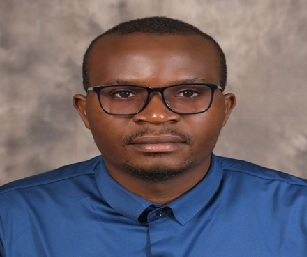
Joel Otieno
Joel Otieno is a seasoned research, knowledge translation, and policy engagement specialist with a passion in rethinking public policy and development practice in Africa through data-driven decision-making. He is a champion for Evidence-Informed Decision Making (EIDM) in Africa and an active member of the Africa Evidence Youth League (AEYL), where he supports networking and capacity sharing to shape young people’s contribution to the EIDM work in Africa. He has worked in various policy research and development organizations, contributing to evidence production and sharing, supporting structures of local knowledge, and creating data-driven solutions to African policy and development challenges.
Mr. Otieno is currently the Programme Manager at the Rift Valley Institute (RVI) – a premier international research and policy think tank based in Nairobi, where he manages a portfolio of work in research and policy engagement covering the Horn and Great Lakes region of Africa. He is involved in the day-to-day leadership and coordination of programme activities including research planning and execution and driving stakeholder engagement for knowledge transfer on best practice and policy formulation. Prior to joining RVI, he served at the Partnership for African Social and Governance Research (PASGR), as a senior programme officer for research and policy uptake. He contributed to the development of the Utafiti Sera model, which is PASGR’s innovative framework/approach for connecting research to policy and maintaining networks of close collaboration among relevant stakeholders. He also task-managed the Africa Youth Aspirations and Resilience project, which explored Africa’s young people’s aspirations, hopes, and resilience, their perspectives of dignified and fulfilling work against the background of diminishing opportunities.
He has worked on several policy advocacy initiatives touching on governance and democratic practice, peacebuilding, climate change, and economic development across Africa.
He holds a Master’s degree in International Peace Studies (Distinction) from Liverpool Hope University (UK), a Bachelors in Conflict Resolution and Humanitarian Assistance (First Class) from Masinde Muliro Univerity of Science and Technology (Kenya), and a Professional Certificate (ProCert) in Public Policy Analysis from London School of Economics and Political Science (UK).
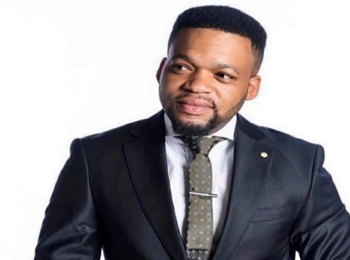
Lesedi Senamele Matlala
Lesedi Senamele Matlala epitomizes the essence of a modern-day Renaissance individual, seamlessly navigating multiple roles with expertise, passion, and dedication. As a Lecturer, Researcher, Social Entrepreneur, Education Activist, and Executive Director of Go-Getters Brand, a Research Consultancy, Lesedi's professional journey is marked by academic excellence, societal impact, and a relentless commitment to advancing knowledge and fostering positive change.
With a Master’s in Public Policy, Monitoring, and Evaluation, Lesedi's academic foundation is robust, complemented by Postgraduate Diplomas in Labour Law from the University of Johannesburg (UJ) and Research Methods and Skills from Maastricht University. Currently pursuing his PhD at UJ, Lesedi's academic pursuits reflect a deep-seated passion for understanding complex societal issues and developing evidence-based solutions.
Lesedi's professional portfolio extends beyond academia, encompassing diverse spheres of influence and engagement. In his capacity as a Lecturer, he imparts knowledge and inspires future leaders in Public Management and Governance, specializing in Public Policy, Monitoring, and Evaluation. Through his dynamic approach to teaching and mentorship, Lesedi empowers students to critically analyze policy challenges and develop innovative strategies for effective governance.
Beyond the classroom, Lesedi is deeply engaged in the broader landscape of civil society, holding leadership positions and actively contributing to various organizations. He plays a pivotal role in associations such as the Association of Southern African Schools & Departments of Public Administration & Management (ASSADPAM), South African Association of Public Administration and Management (SAAPAM), and the African Evaluation Association (AfrEA). Through these platforms, Lesedi collaborates with like-minded individuals to drive meaningful change and shape the future of public policy and governance in Africa.
Lesedi's commitment to youth leadership and empowerment is exemplified through his involvement in numerous initiatives and organizations. As an Ambassador at the South African BRICS Youth Association (SABYA) and the World Literacy Foundation (WLF), he champions the rights and aspirations of young people, advocating for inclusive development and equitable opportunities. Additionally, Lesedi serves as a Sustainability Coordinator at the YALI Regional Leadership Centre, where he fosters leadership skills and promotes sustainable development practices among emerging African leaders. He is also a Board Member for Accessed ZA programme.
In recognition of his outstanding contributions to society, Lesedi has been honored with prestigious accolades and awards. Named one of the Mail & Guardian 200 Young South Africans, he is celebrated for his exceptional leadership and commitment to social change. Furthermore, as a finalist for the TransUnion Rising Star Award and a recipient of recognition from FOYA as an entrepreneur of the year, Lesedi's entrepreneurial spirit and innovative mindset are widely acknowledged and respected.
Central to Lesedi's professional ethos is his unwavering dedication to evidence-informed decision-making. His research endeavors focus on critical issues such as Educational/Learnership Programs, Policy Impact Assessment, Socio-Economic Studies, and Monitoring and Evaluation. Through rigorous analysis and meticulous methodology, Lesedi seeks to uncover insights that inform policy formulation and drive positive societal outcomes.
Lesedi's prolific academic contributions extend beyond scholarly publications, encompassing conference presentations, workshops, and seminars. By sharing his expertise and insights with diverse audiences, he facilitates knowledge exchange and fosters collaborative learning environments. Through these platforms, Lesedi actively contributes to shaping discourse and driving innovation in public policy and governance.
In essence, Lesedi Senamele Matlala embodies the ideals of a transformative leader, blending academic rigor with social activism and entrepreneurial acumen. His journey is a testament to the power of education, mentorship, and collective action in driving positive change and building a brighter future for generations to come.
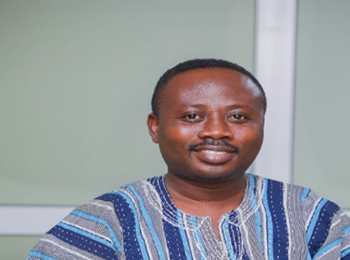
Edem Tornyie
Edem Tornyie is a Development and Management Consultant whose experience record spans the public and private sectors. He holds a Master’s degree in Development Planning and Management from Kwame Nkrumah University of Science Technology. He has been involved in the development of Monitoring and Evaluation frameworks, Research, Training and Capacity Building, and Development of Training Manuals on Local Governance and Decentralization, Community, Revenue Mobilization, Business Development Services, and Community Engagement, among others.
He has an extensive track record in Research, Monitoring Evaluation, Performance Assessment Instruments and Participatory Methodologies, Business Development, and Training of Micro and Small-Scale Enterprises (SMEs) and various institutions across sectors. With a background in Development Planning, he has in-depth knowledge of the legal, regulatory, and policy frameworks that guide the local government system.
Currently, Edem is a Managing Partner and Senior Consultant with VIS Afrika Technologies Limited. He serves as Survey and Evaluation Manager for the Peace through Evaluation, Learning and Adapting Activity II (PELA II) Information Manipulation Qualitative (KII) Data collection study for USAID/Khulisa in Ghana, Benin, Cote D’Ivoire and Guinea.
He has performed some assignments for the European Union, Deutsche Gesellschaft für Internationale Zusammenarbeit (GIZ), Switzerland’s State Secretariat for Economic Affairs (SECO), Japan International Cooperation Agency (JICA), United Nations International Children's Emergency Fund (UNICEF), United Nations Development Programme (UNDP), Environmental Justice Foundation, Tullow Oil Ghana Limited and Care International.
Since 2021, Edem has been a member, of Ghana’s Climate Measurement, Reporting, and Verification (MRV) Community of Practice (CoP). The MRV-CoP is a network of practitioners (including experts), institutions, and sectors that facilitate the flow of and access to information on climate MRV. The MRV-CoP also influences Policy Makers especially Government and decision makers on key inputs to ensure sustainability.
Edem is also a member of the National Mirror Committee for Circular Economy, Ghana representing the Ghana Standards Authority and working on ISO 509020 which allows him to work with other professionals on Standards and certification to help ensure sustainable development. Edem is a UNIDO Cluster Training Coach for Small and Medium Enterprises in West Africa. During the Evidence to Action Conference in Kampala-Uganda, 26th – 30th September 2022, he volunteered and contributed to the review of papers and posters.
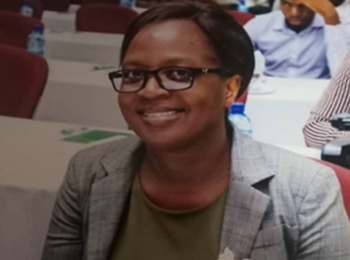
Esmie Nhlane
Esmie Nhlane is a dynamic Monitoring and Evaluation (M&E) expert known for her pioneering work in developing Government-wide Monitoring and Evaluation Management Information Systems (MIS). With over 17 years of working experience in the field, Esmie has played a key role in transforming how the public sector use data to promote evidence-based decision-making while also improving accountability and transparency.
Esmie's interest in using data to inform policy and enhance public service delivery led her to pursue a career in monitoring and evaluation. She has a Master of Arts in Economic Policy Management from the University of Zambia, and shortly after graduation, she spearheaded the development of the result M&E framework for the then-National Development Strategy, the Malawi Growth and Development Strategy (MGDS III 2017-2022). During her Secondment as M&E Specialist at the National Planning Commission in 2020, she headed the M&E Directorate and led the Mid-Term Review of the MGDS III, which served as a benchmark for the development of the current Malawi Vision 2063.
Esmie managed M&E programs on a national and international level throughout her career, collaborating with government agencies, development partners, and civil society organizations. Esmie in 2022 was appointed as a member of the Evaluation Reference Group for the Malawi-UNICEF Country Programme of Cooperation 2019-2023 because of her devotion in leading data for evidence-based decision-making. Her expertise in building and implementing M&E frameworks that cover the full policy cycle. Driven by a dedication to results, she coordinated the formulation of the Terms of Reference (ToRs) for the National Evaluation Plan (NEP). Through her leadership, she managed to secure funding from the UNICEF Malawi office to deploy a consultant to develop ToRs for the NEP, which will guide evaluations for evidence-based informed policy decisions.
Esme’s leadership coordinated the establishment of Government-wide M&E Management Information Systems is one of her most significant contributions. Recognizing the need for a centralized platform to integrate and harmonize M&E data across government ministries departments and agencies (MDAs). This public reform area increased data quality and availability, but have also made it easier to develop evidence-based policies, allocate resources, and manage development performance. Furthermore, to guarantee data availability for the functionality of the MIS system, Esme spearheaded the development of a harmonized reporting template for all MDAs programs and projects.
Esme’s impact extends beyond the technical aspects of M&E systems. She is deeply committed to assisting government officials and M&E practitioners in making sound data-driven decisions. She chaired the National Aids Commission Research, M&E Technical Working Group. She led many training workshops, seminars, and knowledge-sharing events, equipping stakeholders with skills and resources they need to use M&E systems achieve meaningful change.
Esme's passion for innovation and social impact drives her to continue pushing the frontiers of M&E practice, developing the sector, and achieving concrete gains in governance and development outcomes. Esme coordinated the development of the Malawi National Monitoring and Evaluation Technical Committee, comprising of M&E experts from both state and non-state actors because of her visionary leadership and uncompromising commitment to quality.
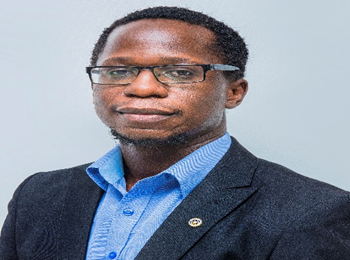
Ismael Kawooya
Ismael Kawooya is a Senior Research Scientist and Head of Office at the Center for Rapid Evidence Synthesis (ACRES) in Uganda. He has seven years of experience engaging with policymakers at the national and sub-national levels in Uganda to enhance access to high quality and synthesized research and data in urgent situations, often within 28 days. He coordinates efforts to ensure the sustainability and scale of the rapid response service, supporting policymakers in health, reproductive health, clean energy, youth employment and climate change to improve equity, health and social outcomes in Uganda and the region.
He has grown to mentor and lead younger researchers at ACRES and in the East African region, set trends in application of methods and newer technologies, such as Artificial intelligence for EIPM, and champion the sustainability of institutions supporting EIPM within the region. Ismael has supported and mentored more than 110 researchers and policymakers in Tanzania, Ethiopia, Kenya, Malawi, Zimbabwe, Zambia, Uganda, Cameroon, India, and Malaysia. He is also currently a co-investigator on a regional collaboration to mentor teams in Tanzania, Malawi, Ethiopia, and Uganda to scale up and/ or establish rapid response units to support EIPM within their contexts.
He has gained international recognition through the Cochrane child-health fellowship 2019, Emerging Voices for Global Health (EV4GH) 2022, and International Health Policy (IHP) resident 2023 at the Institute for Tropical Medicine in Antwerp.
Ismael holds a bachelor’s degree in medicine and surgery and Masters in Clinical Epidemiology and Biostatistics from Makerere University.
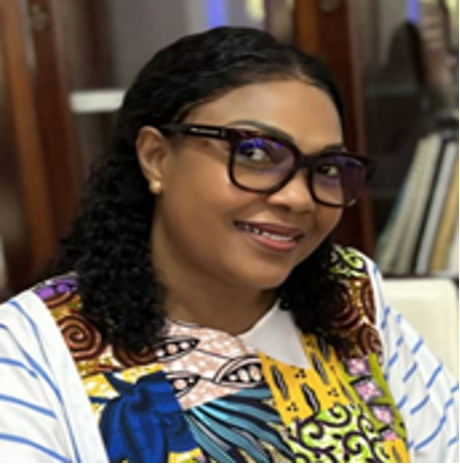
Rokhaya Cissé
Rokhaya Cissé is a sociologist and a researcher at the Laboratoire de Recherche sur les Transformations Économiques et Sociales (LARTES) of the Institut Fondamental d'Afrique Noire (IFAN) at the Université Cheikh Anta Diop de Dakar (Senegal). She has accumulated over 15 years of rich experience in the field of research in social sciences (sociology, poverty, education, health). Her wide-ranging work, which includes 5 books and thirty scientific articles, has focused on two major areas: the in-depth study of impoverishment processes and the resilience of vulnerable groups, and the analysis of human capital in all its complexity.
Pr Cissé has studied socio-economic vulnerabilities from intergenerational and gender-specific perspectives, making an invaluable contribution with the co-publication of the landmark book “La pauvreté dynamique au Sénégal” (ie/ Poverty dynamics in Sénégal) in 2022.
In the crucial field of education, she led the 2019 edition of the Jàngandoo barometer, a nationwide project to assess the quality of learning across Senegal. This initiative of unprecedented scale reached 17,292 households and 21,504 children across the country's 45 departments, testifying to the importance attached to improving education systems.
Rokhaya Cissé's concern for inclusion and equal opportunity has also led her to explore the issue of children's exclusion from the school system and other forms of learning. Her research led to the publication of an enlightening chapter on the relevance of remediation to improve learning at primary level, opening up new perspectives for combating educational inequalities. She was also awarded the French Ministry of Education's 2021 prize for major pedagogical innovation.
Going beyond national borders, Pr Cissé has extended her research internationally, focusing on social protection policies in Southern countries. Her work culminated in the publication of the remarkable book “Benchmarking Social Protection Policies in Southern Countries”, demonstrating her unwavering commitment to comparing and disseminating effective policy models across the globe.
In the face of the COVID-19 pandemic, she reinforced her commitment to resilience studies, providing valuable insights in articles such as “COVID-19 and the tipping of households into poverty in Senegal” and “Les impacts de la COVID-19 sur la société Sénégalaise”. However, her work is not limited to analysis; she transforms this knowledge into policy briefs that help authorities and non-governmental organizations formulate interventions based on sound scientific evidence.
Beyond her academic achievements, Pr Cissé is actively engaged in building the capacity of communities and decision-makers in the effective use of evidence. In particular, she participated in the “Evidence 2023 capacities webinar series (4)” webinar and is a member of the African Network Evidence network as well as the ALIVE: Youth Employment Evidence and Insights Hub consortium, in collaboration with Pan-African Collective for Evidence.
Rokhaya Cissé continues to play a leading role in improving socio-economic conditions, both nationally and internationally, thanks to her solid expertise in the production and dissemination of high-quality scientific evidence.
She's a mother and speaks three languages: Wolof, French, and a bit of English.
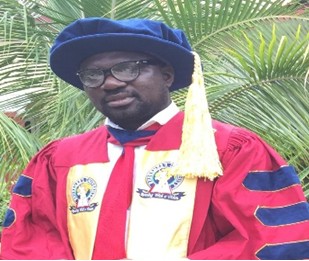
Adewale Adewuyi
Adewale Adewuyi holds a PhD in industrial Chemistry from the University of Ibadan. His academic and professional career is marked by a relentless drive to develop innovative solutions for critical challenges in environmental sustainability in Africa, which cuts across chemical pollution, energy, and water.
Adewuyi's unwavering commitment to scientific leadership and collaboration is reflected in his impressive international fellowships, grants, and awards track record. This includes the prestigious honors such as the Alexander von Humboldt Fellowship (Germany), the Fulbright Visiting Scholar Award (USA), TWAS-DFG (Germany), TWAS-UNESCO (Argentina), COIMBRA Group Scholarship (Italy), Cambridge-Africa Alborada (UK), TWAS-Biovision (Egypt), TWAS-CNPq (Brazil), CICS (India), Royal Society of Chemistry (UK, Ethiopia), Euroscience-Bosch (UK), Lindau Nobel Laureate (Germany), IchemE ($10,000, UK), IFS Water Research Grant (No W/5401-1, SWEDEN, $11,548), Seeding Laboratory Access Grant (Worth $298,634, USA) Africa Union-TWAS Young Scientist National Award (($5,000), Redeemer’s University Research Grant (RUN/REG/URG&SDC/31/Vol.4/214), Joint ASRT-BA Research Grant (£120,000, Egypt), Africa-Uninet Research Cooperation Grant (EUR 16,400, Austria), Baden-Württemberg Stiftung (Germany), Japan Science and Technology, PAN Africa Chemistry Network travel grant, Schlumberger Excellence in Education Development support and many more.
He is a prolific writer and in his contribution to the growth of science in Africa, he has published 121 research articles in reputable journals. Recently, Adewuyi registered a patent to his credit as the hallmark of his research discovery. As a leader, he served as an African Academy of Sciences Affiliate from 2016-2020 and emerged as an AEN member in 2020. He has contributed immensely to creating awareness of evidence-informed decision-making in Nigeria by currently serving as a professor on a national assignment for the Federal Government of Nigeria on the National Committee on Chemical Surveillance and Emergency System in Nigeria (NCCSMSN). He is using his expertise on environmental monitoring of water quality across Nigerian states to help advice the Nigerian government in decision making towards the attainment of SDG 6 and SDG 7. This covers risk assessment and management in policy formulation and enactment. Presently, Adewale and his team (NCCSMSN) have embarked on the establishment of poison centres in the geopolitical zones in Nigeria to handle chemical outbreaks and control as well as use evidence to drive policy in Nigeria.
Adewale has vast public engagement experience focusing on the provision of safe drinking water in accordance with SDG-6. He is engaged in projects facilitating environmental impact assessment creating awareness on water quality assessment globally. Presently, Adewale is involved in a community development project using his research grant (https://africa-uninet.at/en/projects/call3/p092-nigeria) by Africa-Uninet to provide clean drinking water for the people of Ede North Local Government area with a population of 108,800 benefiting from the project.
Adewale Adewuyi is a Professor of Industrial Chemistry at Redeemer’s University and has served as Head of the Department of Chemical Sciences, Director of Research, and a member of the Senate with skills to enhance policy development for the promotion of science and the benefit of humanity. He is an Alumni of the Global Young Academy, Nigerian Young Academy, and a TWAS Young Affiliate.
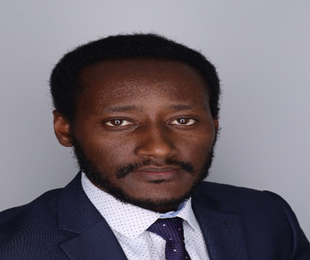
Innocent Nzeyimana
Innocent Nzeyimana is a dedicated medical doctor and public health professional, with a fervent commitment to community health, evidence-based practice, and advocacy. He is very passionate to contributing to transforming healthcare delivery systems and improving health outcomes for underserved populations.
Born and raised in low-resource countries, Dr. Nzeyimana was inspired from a young age by the pressing healthcare challenges facing his community. This early passion propelled him to pursue a career in medicine and public health.
Driven by a vision of accessible, equitable healthcare for all, Dr. Nzeyimana co-founded Healthy People Rwanda, a pioneering organization dedicated to promoting community health and advancing evidence-based practices. As President of Healthy People Rwanda, He has played a pivotal role in establishing the organization as a cornerstone of healthcare advocacy and health promotion.
Under Dr. Nzeyimana's leadership, Healthy People Rwanda has flourished into a well-established institution with a formidable reputation for its impactful community health projects and groundbreaking research initiatives. Through strategic partnerships with local stakeholders and international organizations, Healthy People Rwanda has implemented a wide range of programs aimed at addressing pressing public health issues, from sexual and reproductive health rights to road safety.
Driven by a commitment to excellence, Dr. Nzeyimana has been instrumental in fostering a culture of innovation and continuous improvement within Healthy People Rwanda. Through his visionary leadership, the organization has spearheaded numerous research endeavors, generating valuable insights that inform evidence-based practices at various levels.
Dr. Nzeyimana's dedication to advancing public health extends beyond his professional endeavors. He is deeply involved in mentoring the next generation of healthcare leaders, imparting his knowledge and expertise to aspiring medical professionals and public health practitioners.
As he continues to pursue his mission of building healthier communities and advancing healthcare equity, Dr. Nzeyimana remains steadfast in his commitment to evidence-based practice, research, and advocacy, ensuring that every individual has the opportunity to lead a healthy and fulfilling life.
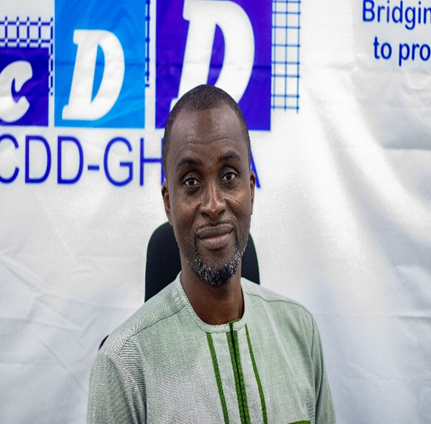
Mohammed S. Awal
Mohammed S. Awal is the Research Manager and Team Leader, Governance and Social Accountability Practice at the Ghana Center for Democratic Development (CDD-Ghana). CDD-Ghana is a research and policy influencing and advocacy think tank, based in Accra, Ghana. Mohammed's role at CDD-Ghana involves designing and implementing research and program interventions that integrate evidence-based research, citizen engagement interventions, and accountability and transparency initiatives to support the deepening of local democracy, governance, and inclusive development outcomes in Ghana.
Since 2019, Mohammed has been leading CDD-Ghana’s multi-year Evidence for Development (E4D) project initiative. This initiative aims to strengthen and promote the use of evidence in decision-making to improve the quality of governance and accountability in service delivery at the district level. The project combines capacity-strengthening activities, as well as bringing together stakeholders working in local government and civil society who are interested in enhancing evidence use to form a “community of practice” to advance evidence-informed decision-making practice in local government across three districts in Ghana.
Mohammed is also actively involved in CDD-Ghana’s national-level policy influencing and advocacy campaigns focusing on promoting governmental transparency, accountability, citizen engagement practice, and the provision of local public services in rural Ghana.
Mohammed holds a Bachelor of Arts and a Master of Philosophy degree in Political Science from the University of Ghana. His research interests are in the areas of the politics of development, natural resource governance, policy and practice of education governance, and local and urban governance reform.
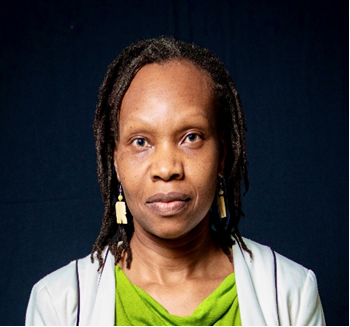
Violet Murunga
Violet Murunga is a Research and Policy Analyst at the African Institute for Development Policy (AFIDEP), where she has been since 2011. Violet has over 15 years in public health research and practice including championing and strengthening capacity for knowledge translation (KT) and evidence-informed decision-making (EIDM) in Africa and globally. Violet has expertise in designing, managing, and monitoring and evaluating KT and EIDM projects, conducting policy analyses, political economy analyses, research impact assessments and systematic rapid reviews, packaging and communicating evidence using various policy and media engagement strategies including organising dialogues and evidence-based advocacy, and strengthening the KT and EIDM capacity of policymakers, researchers, civil society organisations, media and their institutions.
Violet leads/has led a wide range of KT/EIDM projects/ activities including assessments of EIDM contexts (Gender data and decision-making project), EIDM capacity strengthening projects targeting Ministries of Health, Parliaments and research institutions in Kenya, Malawi and Uganda and also research consortia (e.g., in partnership with LSTM) and evaluating EIDM initiatives/ research impact studies (SECURE Health, HIGH-Res projects and Global Challenges Research Fund).
Violet is currently leading the EIDM capacity strengthening project Learning Together to Advance Evidence and Equity in Policymaking to achieve the SDGs (LEEPS). The project is championing and strengthening capacity for KT and EIDM among policymakers, researchers and other key actors in reproductive health and clean energy sectors at country level (in Kenya and Nigeria) and through regional networks and convenings. The project is also explicitly integrating gender equity and inclusion concepts and tools in KT and EIDM processes and capacity strengthening.
Her work through the project enSURE Adolescent Sexual and Reproductive Health (2013-2017), co-created with the Kenya Ministry of Health Division of Reproductive Health, improved performance monitoring of and policies, actions and investments addressing adolescent (10-19 years) contraceptive, pregnancy and post abortion services and pregnancy related deaths at national and sub-national level. The project supported adolescent age disaggregation of reproductive and maternal health indicators reported in the Kenya health information systems (KHIS); rolled out in 2016. The project also produced county adolescent sexual and reproductive health factsheets that were used to contextualise the 2015 Kenya National ASRH policy into county ASRH strategies.
Violet has contributed to KT/EIDM discourse and the growth of the KT/EIDM field in Africa and globally. Her PhD (2022) generated evidence on how the interplay between individual, institutional and systems level factors shape the knowledge translation capacity and practice of researchers in Africa. She has published papers focusing on LMIC researchers’ KT capacity, practice, and support; factors influencing family planning decisions; factors influencing research uptake and policy implementation. She has also participated and served on various committees, working groups, and panels including the expert committee that is advising the UKCDR Research Excellence Framework 2021 (REF 2021) evaluation and Abstract Review Committee for the 2018 and 2023 Africa Evidence Network Conferences. Violet holds a Ph.D. (Research Uptake) from the University of Liverpool, UK, a Master of Public Health (Epidemiology) from Florida International University, US and a Bachelor of Science (Biotechnology) from the University of Newcastle, Australia.
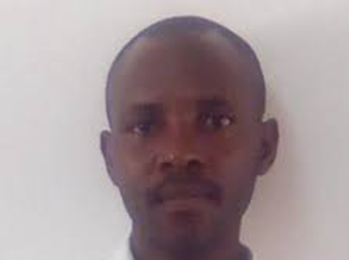
Alpha Ntayomba
Alpha Ntayomba is an Executive Director for Population and Development Initiative (PDI) in Tanzania. An experienced advocate for responsible mining in Tanzania, Alpha is making efforts to advance the rights of workers, affected communities and environmental protection in mining areas especially in the Geita region (Tanzania). Geita region is potential for gold production and a home of more than 400,000 small scale gold miners working in challenging geographies in the region.
Alpha is using evidence-based advocacy efforts to address the crucial challenges the miners and affected communities face in daily mining activities by mid and large mining companies. He utilises research findings by International Peace Information Service (IPIS) in a research project (2018-19) called Mapping the Socio-Economic and Human Rights Impact of Mining in Northwest Tanzania The research project brought into light issues of mercury use in gold mining and its negative effects in people’s health and that of the environment, lack of sanitation services among small scale miners, little wages to miners, limited participation of women in mining activities and environmental degradation because of mining activities, among other challenges.
The evidence use influenced more advocacy efforts which led the government authorities to accelerate formalisation of small-scale mining sector by providing primary mining license and more areas to mine in efforts to reduce land conflicts. Alpha, PDI and agents of change are using various social accountability tools such as Mine Site Assessment Tool and community score cards as well as dialogues, community radio to address the challenges among other engaged local CSOs in Geita region. The initiatives are gaining traction, small funding and technical support from interested partners such as Responsible Mining Foundation, Innovation for Change Africa Hub and Sanitation Learning Hub to address the socioeconomic and human rights challenges facing small scale miners in Tanzania.
The efforts has received good attention by the government authorities, mining associations, village governments and agents of change in Geita region who are now working together as a Community of Practice (CoP) to seek lasting solutions to serve the youth and women working in mining areas. Through sharing of reports on responsible mining in Tanzania, Alpha, PDI, agents of change and miners will continue working with various partners to address the issues of Mercury contamination in water sources, among other challenges facing mining communities in Tanzania.
As a knowledgeable person of the situation among gold mining communities Alpha is now leading a project of monitoring the level of water and sanitation services among 36 gold mining sites and adjacent communities in Geita district by considering the aspects of water access, water quality, waste management, water complaints mechanisms and the use of toilets by means of an interactive digital map. For the next three years the initiative will enhance more advocacy efforts by agents of change, monitoring and reporting on the way the small scale gold mining sites navigate to better water and sanitation services such as increased construction and use of toilets by miners and adjacent villagers.
These efforts made Alpha secure a CSO piller seat at the European Partnership for Responsible Minerals where he continues to share insights for evidence-based advocacy initiatives in the context of responsible mining among mineral-producing countries like Tanzania.
Alpha is continuing to share experiences in national and international events such as the Data for Impact Symposium organised by the Public-Private Alliance for Responsible Minerals Trade in 2024. Alpha's contributions have increased civic space in a way that a good number of mining sites in the Geita region, Tanzania are now under responsible mining radar for the wellbeing and health of mining communities as well as environmental sustainability.
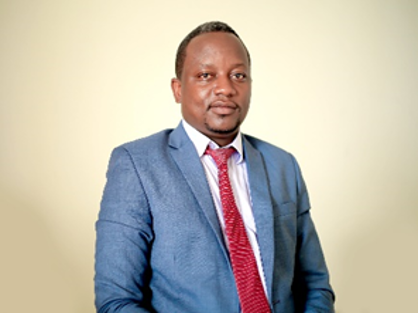
Edwin Byusa
Edwin Byusa is a seasoned professional with a robust seventeen-year track record in evidence-based decision-making in the development sector. His contributions have significantly influenced different project/programme outcomes, particularly in areas such as project/programme implementation, coordination, management, M&E, data-driven policymaking, systems strengthening, training, capacity building and development, training resource or manual development, human resources management, operations and budget management. His academic qualifications, including a PhD in Science Education and certification in Project Management for Development Professionals (PMD Pro I), further enhance his expertise.
His working areas include but are not limited to economic digitalisation, financial inclusion, education, inclusive education, EGRA, EGMA, SEGRA, SEGMA, policy reform, fundraising, planning, health, SGBV, WASH, nutrition, gender equality and equity, child protection, community engagement, youth empowerment and engagement, environmental impact assessment, environmental health, and safety; Building the capacity of government staff and stakeholders, on different project cycle, results chain, M&E, and performance management; data and data use for decision making, data-driven approaches. Working relationships with other countries' programmes (in West and Francophone African countries, the Middle Eastern and North African countries, Central and Southern African countries, and Eastern African countries) and some reporting lines with regional and headquarters offices in South Africa, Canada, and the USA. Member of the Senior Management Team of three International Organizations. Signatory to the bank account of the INGO, reviewing the expenditures. Consultant to the World Bank Group, UNICEF, and the Government of Rwanda's institutions. He works with projects and programmes funded by the World Bank Group, Mastercard Foundation, USAID, UKAID/BHC/FCDO, CIDA/DFTD/GAC (Global Affairs Canada), Irish Aid, and UNICEF.
Edwin is good at networking, which significantly influences improved project/programme outcomes. He has a good command of dealing with internal and external stakeholders (client or donor), representing the country office in national and international events with client interaction, and leading a team. He has good publications in peer-reviewed, reputable and highly indexed journals. He is fluent in English, French, Kinyarwanda, and basic Swahili. He is a reviewer of SCOPUS-indexed journals. As a dedicated and results-driven professional, he has consistently contributed to achieving organisational goals. For instance, he successfully led the Capacity-building component of the MINICT (Rwandan Ministry of ICT and Innovation) programme funded by the Mastercard Foundation and implemented by Cenfri, significantly enhancing the data-driven approach for public and private sector staff.
Similarly, he spearheaded the Inclusive Education Initiative for the World Bank Group. He spearheaded the Building Learning Foundations (BLF) support to MINEDUC (Rwandan Ministry of Education) in all matters related to ESSP (Education Sector Strategic Plan). MINEDUC recognised his efforts and sent an appreciation letter to BLF/ Education Development Trust in Rwanda. He also led the M&E function at FHI360 to the satisfaction of our client, USAID Rwanda. He successfully managed the interim Bugesera project in Right To Play, which improved the overall public image of Right To Play International. That achievement has been instrumental in his promotion to a senior management team member of Right To Play, where I headed the MEL department.
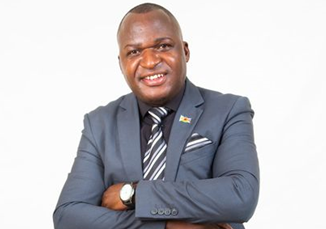
Enock Musungwini
Enock Musungwini is a seasoned public health professional, health management consultant, and development practitioner, currently serving as a Programme Manager (Consultant) for the NGO Pangaea Zimbabwe. Enock is pursuing a PhD in Public Health at UNICAF University, specializing in Public Health Policy and Financing. He holds an MSc in Public Health (MPH) with a Research award from the London School of Hygiene and Tropical Medicine in the UK, obtained under the prestigious British Chevening scholarship (2018-19 cohort). Additionally, he has earned a Master's in Business Administration (MBA) and a BSc Hons in Psychology, among other qualifications.
Enock has been a driving force in promoting evidence-informed policies and practices at Pangaea Zimbabwe and in past engagements as he led an internal evaluation of the Wild4Life health program at Pangaea Zimbabwe in 2022 and drafting program proposals, reports, and abstracts. His expertise in data verification, validation, and triangulation ensures accurate evidence documentation for program improvement and has spearheaded the design and implementation of evidence-based programs at Pangaea Zimbabwe resulting in him being awarded the Brand Ambassador and Growth and Innovation awards by Pangaea Zimbabwe in June 2023. By integrating research findings into program planning and implementation, Enock ensures interventions are evidence-informed and data driven.
Recognizing the importance of capacity building for evidence-informed decision-making, Enock recently participated in a 2-week training as an ARIN Fellow in April 2024. He has also collaborated with ZEIPNET as an Associate, working with policymakers such as the Parliament of Zimbabwe and the Ministry of Health on Evidence-Informed Decision Making (EIDM). Enock's involvement as a Steering Committee member of the International Network for Government Science Advice – Africa chapter highlights his commitment to promoting evidence, science advice and diplomacy across the continent. Enock's dedication to advocating for evidence based and correct health information dissemination is evident through his role as a Country Representative Zimbabwe for Healthcare Information for All (HIFA), where he was awarded the Country Representative of the Year for 2022 among 247 Country Representatives, and the Chevening Volunteers Gold Award from the British Foreign and Commonwealth Office in London (June 2019).
Enock serves as a Research Assistant with the International Centre for Evidence in Disability at the LSHTM, where he develops evidence briefs for Disabled Persons Organisations in Africa and Asia. He is a member of the Consortium for Universities for Global Health in the USA and the Royal Society for Tropical Medicine and Hygiene in the UK. Enock's impact in the academic and research spheres is evident through his prolific writing and dissemination of evidence through peer-reviewed publications, articles, and blogs. He actively presents and participates in national, regional, and international conferences, amplifying the visibility of evidence-informed decision-making principles. Enock's role as a visiting Lecturer at the Department of Family and Health Sciences at Women’s University in Africa underscores his commitment to championing evidence-Informed approaches in education.
Enock's active engagement on social media platforms further extends the reach of evidence-based messages and facilitates knowledge exchange within the global health community. His leadership and dedication to advancing evidence-informed policymaking make him a respected Evidence champion.